Canada Slams Iran’s Threats Against Journalists
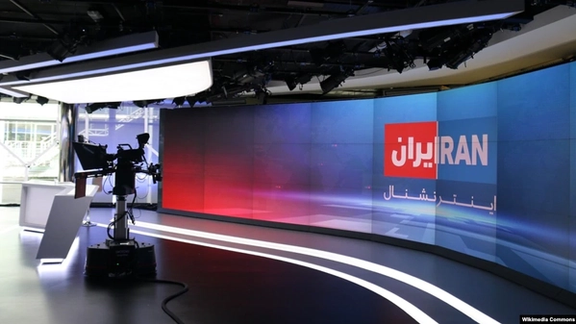
Canada’s Ministry of Foreign Affairs has told Iran International that it condemns threats by the Islamic Republic against journalists inside and outside the country.

Canada’s Ministry of Foreign Affairs has told Iran International that it condemns threats by the Islamic Republic against journalists inside and outside the country.
Responding to a query, the ministry said journalists and media workers must freely do their job without political interference or intimidation.
“Freedom of expression, online or offline, is a fundamental human right, enshrined in the Universal Declaration of Human Rights. Journalists, activists and media workers are the cornerstone of any fair, strong and vibrant society and must be free to do their work without fear of reprisals. Any violence and intimidation against journalists or activists are completely unacceptable and must be condemned,” reads the statement.
Canada's spy agency has launched an investigation on what it calls multiple “credible” death threats against individuals on its soil by the Islamic Republic.
CBC News said Friday that the Canadian Security Intelligence Service (CSIS) is aware that some state agents of the Islamic Republic are “monitoring and intimidating” people inside Canada to silence those who speak against the regime.
On November 7, Iran International released a statement that its journalists have received “credible threats” from Iran’s Revolutionary Guard. Some employees were informed of the threats by the Metropolitan Police.
After the publication of this statement, international organizations supporting journalists condemned any plots by the Islamic Republic against Iran International on British soil.
UK’s intelligence authorities also announced they have discovered at least 10 “potential threats” since January to “kidnap or even kill British or UK-based individuals perceived as enemies of the regime.”
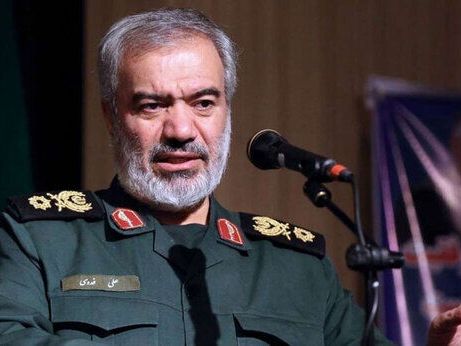
A top Revolutionary Guard commander says anti-government unrest in Iran persists because there are protesters who have been “deceived”, presumably by foreigners.
Deputy commander of the Guards Ali Fadavi said Monday that the IRGC tried to appease and put up with those who were deceived and joined the protests, and that is the reason why the unrest has not ended, otherwise “it would not have lasted more than six days.”
Fadavi also claimed that sixty government agents have been killed during the suppression of protests that began in September following the death of Mahsa Amini in police custody. Some believe fewer government agents have been killed and the IRGC uses the identity of dead protesters as its own “martyrs”.
Once again linking the nationwide protests to foreign conspiracies, he said, “We were dealing with deceived people inside the country, and we put up with them.”
“Deceived” is a term that Ali Khamenei, the Supreme Leader of the Islamic Republic, has used many times to describe the people, especially the young protestors in the streets, emphasizing that the unrest is staged by “foreign enemies.”
Other officials have been repeating Khamenei’s allegations that foreign countries and conspiracies were behind fomenting the protests.
Fadavi, however, did not mention the killing of more than 400 protestors, including children, by government forces, including almost 50 children.
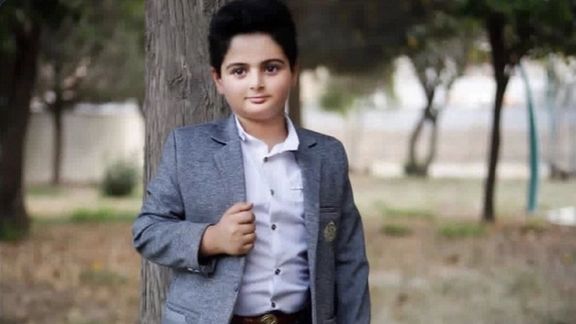
Shocked by the indiscriminate killing of children during ongoing protests in Iran, many are asking the international community to intervene and restrain the regime.
Security forces have killed at least 58 children as young as two in the past two months. Authorities say 54 security forces and regime loyalists were killed in clashes with protesters in the past two months. Many believe government casualties are much lower as in several cases authorities have tried to highjack the victims as their own “martyrs”.
One such victim was ten-year-old Kian Pirfalak who was reportedly shot by plainclothesmen in Izeh in the southwestern province of Khuzestan on November 16. Authorities have blamed “terrorists” for Kian’s death and used his photo in their propaganda posters.
Kian died and his father was seriously injured when the family including Kian’s younger brother came under fire in the family car on their way home on the street.
In a fiery speech at her son’s burial, Kian’s mother said she had no doubt about who had shot her family and implicitly accused Supreme Leader Ali Khamenei of responsibility for her young son’s killing. Authorities have put her under great pressure to retract her accusations.
One of the very first children shot dead by security forces was a two-year-old boy in Zahedan. The boy from a poor family has only been mentioned by his last name, Mirshekar. He was shot in front of his home in a poor neighborhood of Zahedan, capital of southeastern Sistan and Baluchestan Province, on September 30.
The two-year-old boy was one of the 13 children killed during the crackdown which has come to be known as the “Bloody Friday”. A total of 96 people protesting peacefully, and bystanders were shot dead in Zahedan.
Many Iranians on social media are now referring to the Islamic Republic as the “child-killing regime”. They have also created hashtags such as “Child-Killing Khamenei” and “Child-Killing Regime” which are quickly rising in popularity.
Some have highlighted remarks by an extremist regime ideologue, Ali-Akbar Raefipour, who in one of his speeches claimed Israel used child killing as a strategy to break and subdue Palestinians.
“When you are facing popular forces instead of an army you will have to kill people, kill women and children, deliberately. Kill so many that people try to stop those who are fighting [against Israel] and tell them it’s enough, let go,” Raefipour said in the speech.
Probably in reference to such views, and the large number of children killed in such a short time, one per day, many are saying the regime is employing the same tactic and “systematically” targeting children to inspire fear and suppress the protest movement.
Over twenty prominent Iranian rights defenders urged the United Nations to condemn Iran's government for killing, wounding, and arresting children in a letter Sunday a copy of which Iran International has received.
The letter which is addressed to the secretary general of the United Nations and other UN officials, including secretary general and the chair and members of the Committee on the Rights of the Child, United Nations Human Rights Council, and UNICEF.
The signatories of the letter are all prominent lawyers and rights defenders with a strong record of criticizing human rights violations by the Islamic Republic. They have called for adoption of an international mechanism to document human rights violations by the regime and urged UNICEF to use all the tools at its disposal to make the Iran’s government abide by the Convention on the Rights of the Child (CRC) to which it is a state party.
According to the latest report by Iran Human Rights Activists (HRANA) Saturday, security forces shot or beat to death a total of 402 protesters until Friday. The number of those arrested during this time, including children, is over 16,700 HRANA said in its report.
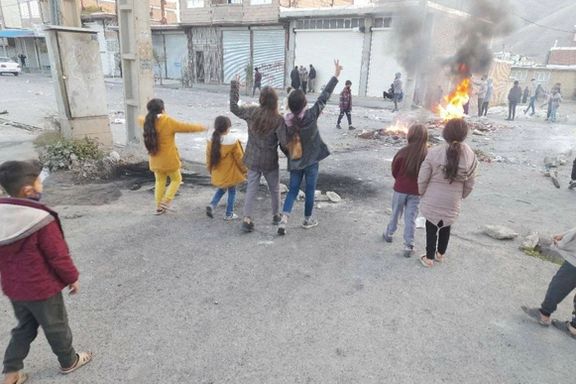
Protests continued Monday with people out on streets chanting slogans and ironically celebrating the loss of their football team at the World Cup as the crackdown is becoming even more harrowing.
Monday was a day of mixed emotions for many Iranians while disturbing footage were released on social media showing the atrocious clampdown on protesters in Kurdish-majority regions as well as sparks of joy among people who – quite counterintuitively – were happy that the country’s national soccer squad suffered its worst ever defeat in a World Cup against England in Qatar.
In many cities across Iran – such as Zanjan, Bandar Abbas in Hormozgan province, and as well as numerous neighborhoods in the capital Tehran, people poured into streets dancing and celebrating with slogans against the regime. Clashes were also reported on Monday night in the city of Karaj, near Tehran.
Many Iranians, who say the Team Melli does not represent the people of Iran but the clerical regime due to their lack of solidarity with the nationwide protests, held gatherings on Monday night and chanted slogans in support of the people in Kurdish cities, who have been struggling against a new level of regime violence, with heavy weapons being used to quell the rallies.
Players of the team, however, remained silent when the Islamic Republic anthem was played at the beginning of the match but people on social media say their show of support is too little, too late. Iranian fans at the stadium were shouting while the anthem was being played and some made thumbs-down gestures in an apparent act of protest against the Islamic Republic. In several videos posted on social media, people can also be heard cheering with each goal England scored. After the match, a group of Iranians held a gathering outside the stadium and chanted “Death to Khamenei.”
According to videos trickling online under a widespread Internet shutdown, the Islamic Republic has started using heavy weapons and modern antiriot techniques against the protesters in Kurdish cities.
In the past few days, the Islamic Republic has intensified its repression on Kurdish-majority cities and towns in western provinces of the country following reports that parts of some small towns have fallen into the people’s hands. The majority of Iran's 10 million Kurds live in the western parts of the country. It has also launched repeated attacks against Iranian Kurds sheltering in Iraqi Kurdistan.
Whenever people think the Islamic Republic’s inhumane acts cannot get any worse, some report of ruthlessness proves them wrong. In a report released on Monday, CNN revealed 11 cases of sexual violence against male and female protesters including boys, in Iranian detention centers, almost all of which occurred in Iran's Kurdish areas. It has also documented rapes that were taped for blackmail.
Confirming the veracity of the claims, one of CNN’s sources said about a case, “When she first came in, (the officers) said she was hemorrhaging from her rectum… due to repeated rape. The plainclothes men insisted that the doctor write it as rape prior to arrest.”
Also on Monday, European Parliament President Roberta Metsola said “there will be no direct contact between the Parliament and Iranian officials until further notice,” adding that the Islamic Republic must stop its oppression of legitimate protests. In reaction to the death sentences imposed on protesters, Metsola urged Iranian authorities to “stop, here and now”.
Earlier in the month, The UN’s Third Committee approved a draft resolution on Iran’s human rights situation, expressing concern at the alarmingly high frequency of the death penalty in the country. Moreover, the UN Human Rights Council will also adopt a resolution aimed at holding the Islamic Republic accountable on November 24.
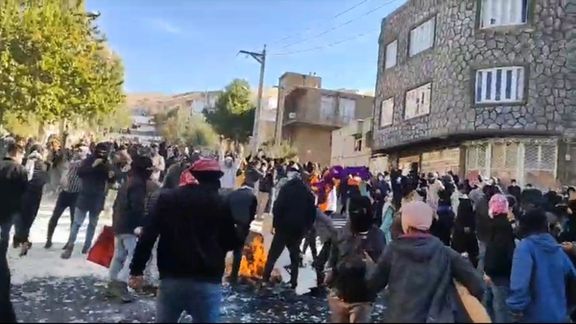
Cyberspace watchdog NetBlocks has confirmed a major disruption to internet service in Iran amid the regime’s intensified attacks on Kurdish cities.
Netblocks that monitors cybersecurity and the governance of the Internet announced in a tweet on Monday that network traffic data show a major disruption to internet service in Iran as mobile internet is cut off for many users.
The incident comes amid a wave of new antigovernment protests and reports of casualties, mainly in the western Kurdish cities.
Several videos shared on social media on Monday showed crowds in the Kurdish-populated city of Javanrud attending to one injured man, and seeking to retrieve the body of a dead protester lying on the street.
Hengaw, a Kurdish Iranian rights group, shared a video of security forces being dispatched to the Kurdish cities of Mahabad and Bukan in dozens of pickups, motorbikes, police cars and one light armored vehicle painted black.
In the past few days, the Islamic Republic has intensified its repression on Kurdish-majority cities and towns in western provinces of the country following reports that parts of some small towns have fallen into the people’s hands. The majority of Iran's 10 million Kurds live in the western parts of the country. It has also launched repeated attacks against Iranian Kurds sheltering in Iraqi Kurdistan.

Gabriel Noronha and Morgan Viña of JINSA in this op-ed article urge the United Nations to act against Russian and Iranian violations of international rules.
This year capped off a disastrous run for the United Nations Security Council and its mandate for the “maintenance of international peace and security”. The world saw Russia – a permanent member the Council – blatantly violate the UN Charter through its illegal invasion of Ukraine and purported annexation of Ukrainian territory. Now, along with Iran, Russia is deliberately violating the edicts of the UN Security Council Resolution (UNSCR) 2231, which, among other restrictions, prohibits transfers of weapons and ballistic missiles to and from Iran. The other UN Security Council members must act quickly and decisively to preserve the crumbling credibility of the institution and its resolutions.
Iran has been supercharging Russia’s war efforts by sending hundreds of attack and suicide drones used to hit Ukrainian civilians, military vehicles, and energy infrastructure. The Ukrainian government quietly disclosed that Iranian military trainers were present in Ukrainian territory occupied by Russia. Now, according to reports from US and foreign intelligence services, the Iranian regime is set to deliver surface-to-surface Fateh-110 and Zolfaghar ballistic missiles with ranges up to 700 kilometers. These missiles would help refill Russia’s depleted war machine to kill even more innocent Ukrainian civilians.
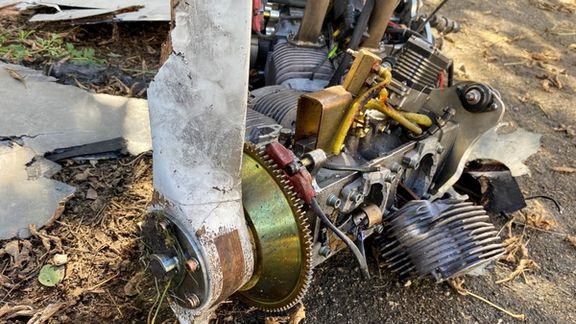
The international community must recognize that Iran is now a belligerent in Russia’s war against Ukraine and should be treated diplomatically as a co-combatant with Russia. For starters, European nations could quickly cancel the dozens of incoming flights to their airports from sanctioned Iranian airlines that simultaneously are delivering drones and missiles to Moscow. But the United States and like-minded nations on the Security Council must also respond to Iran and Russia’s blatant violations of UNSCR 2231. A refresher on the resolution:
When the Iran Deal was finalized in 2015, it contained two parts: the Joint Comprehensive Plan of Action (JCPOA), a non-binding political agreement that described various commitments by United States, the European Union, and Iran; and UNSCR 2231 – a legally-binding resolution passed by the UN Security Council that combined and modified the previous six UN Security Council resolutions against Iran. The new, unified resolution enacted strong and permanent restrictions and sanctions against a wide range of Iranian behavior, including an arms and ballistic missile embargo as well as broad sanctions against its nuclear program. The new 2015 resolution kept several of those restrictions, but Iran was rewarded with time-limitations on each sanction – divorced from any assessments of its ongoing behavior or adherence to the UN’s restriction.
In a farcical turn of events, on October 18, 2023 – now less than a year away – Iran will become free from any UN sanctions that prohibit the sale, purchase, or transfer of ballistic missiles or drones – legalizing the destabilizing weapons transfers it is currently sending Russia.
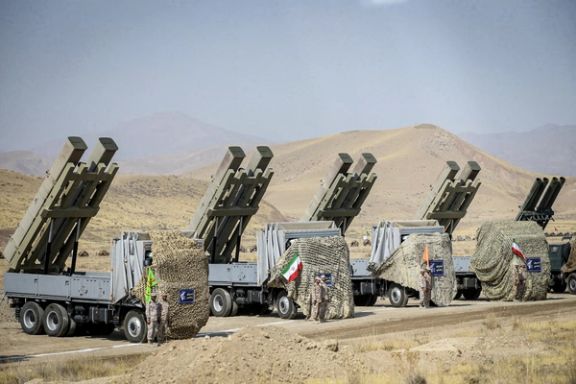
It gets worse. On October 18, 2025, the resolution will self-destruct, ending all UN sanctions on Iran entirely – permitting Iran to legally enrich and reprocess uranium and giving the regime legal cover to advance its nuclear program dangerously close to an enrichment breakout capacity. These pending sunsets are proverbial and literal ticking time bombs.
If the Security Council continues to ignore these weapons transfers in blatant violation of UNSCR 2231, it will reinforce the message that Security Council resolutions are mere paper tigers. Those who believe in the merit of multilateral institutions should be worried too: this puts another dagger in the argument that the peace and stability can be obtained through the United Nations and its pronouncements.
The other members of the UN Security Council must take firm action in response to these violations. First, they should take advantage of the “snapback” procedure in UNSCR 2231 that would permanently return all the UN sanctions set to expire over the coming few years. This would have several practical impacts: it would return the UN’s conventional weapons ban and travel restrictions against Iran’s top terrorists that both expired in October 2020. It would stop the pending expiration next year of the ballistic missile restrictions and the nuclear sunsets in 2025.

Snapback can be initiated by any of the “participants” as defined in UNSCR 2231, which includes the United States, (even while it had ceased participation in the separate JCPOA, it was still listed as a UNSCR 2231 participant), France, Germany, the United Kingdom, European Union, Russia, China, and Iran. The snapback is a 60-day process triggered by a submission by any of these parties that other participants were not meeting their requirements in the JCPOA. Iran started publicly violating its nuclear commitments starting in May 2019 and abrogated them entirely in January 2020.
There is a clear precedent for snapback. In 2020, without the support of other Security Council members, the Trump Administration initiated the snapback mechanism, noting President Barack Obama’s pronouncement in 2015 that, “We won’t need the support of other members of the UN Security Council, America can trigger snap back on our own.”
While it may have passed legal muster in the eyes of the US government, the reality is that other nations ignored the move entirely and refused to recognize the validity of the snapback, citing that the United States had ceased participation in the JCPOA. Paris, London, and Berlin even had the temerity to criticize US efforts to curtail Iranian weapons proliferation around the world. But ultimately the power of the snapback – as of any other UN resolution – is the degree to which other nations view the legitimacy of such acts and adhere to UN pronouncements. Unfortunately, the unilateral nature of the 2020 snapback rendered it ineffective and counterproductive.
As a result of Europe’s refusal to act in the UN, Iran has been emboldened to the point it sends weapons to attack Ukraine. Iran believes they will get away with it, and they may well be right. European credibility and deterrence have been decimated – every subsequent pledge they “will not tolerate” Iranian malfeasance only grows more sadly laughable. If Europe ever wishes to be taken seriously again on the Iran file, they must act now. Paris, London, and Berlin can rectify their errors – and show their support for Ukraine - by initiating the snapback procedure at the UN immediately.
More serious and far more difficult is the prospect of removing Russia from the Security Council altogether. This can only be accomplished by amending the UN Charter, a process that requires both a two-thirds majority vote of the General Assembly and unanimous approval by the UN Security Council – where Russia is already a member. Since Russia would not agree to its own expulsion, this typically ends that conversation, though creative legal solutions have been proposed to bypass their veto.
To its credit, the international community has taken steps, though modest, to isolate Russia diplomatically. Last March, the UN Human Rights Council, led by the United States, expelled Russia, and earlier this month, Russia failed to win re-election to the International Civil Aviation Organization’s national governing council. The international community should build off this momentum and accelerate Russia’s isolation. For example, the Food and Agriculture Organization should immediately take steps to remove Russia from its membership. Russia’s chokehold on Ukrainian ports blocked grain shipments to some of the world’s most food insecure countries. Other organizations Russia should be expelled from include the World Health Organization, for Russia’s targeted attacks on Ukrainian healthcare facilities and the World Trade Organization, of which Russia has already lost its “most favored nation” status. Iran, meanwhile, should be immediately removed from the UN Commission on the Status of Women for reasons that have been made manifestly clear in the past month of nationwide protests against the regime’s violent abuse of women.
UN Secretary-General António Guterres, who was painfully silent in his criticism of Putin for months, has finally condemned Russia’s war on Ukraine. He should follow this up with action. This should include the removal of all Russian personnel from UN peacekeeping missions and the non-renewal of UN aviation procurement contracts. The international community should be prepared to backfill these gaps to ensure mission readiness doesn’t suffer as a result.
International institutions are only as effective as their members. The Russian and Iranian regimes are intent on undermining every value the United Nations was created to promote. If the United States and Europe will not act now, there may not be much at the UN left to save.
Opinions expressed by the authors do not necessarily reflect the views of Iran International